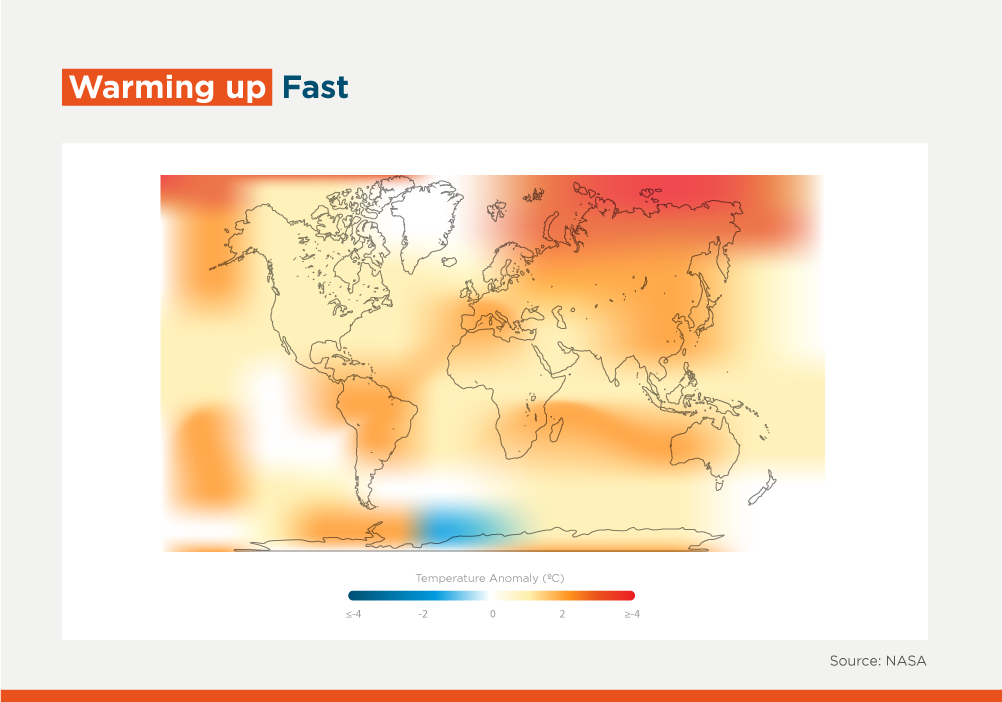Climate Change is Also a Health Issue

Against the backdrop of the COP 26, leaders from around the world discussed how to promote actions to achieve the objectives of the Paris Agreement and the United Nations Framework Convention on Climate Change. The importance of the fight against global warming is well known, but do we know the impact it can have on our health?
According to the World Health Organization, between 2030 and 2050, climate change is expected to cause approximately 250,000 excess deaths per year from causes such as malnutrition, malaria, diarrhea, and heat stress. The same organization estimates that, by 2030, the cost of direct damage to health will be between $2 billion and $4 billion per year.
Natural disasters such as storms, hurricanes, tornadoes and floods cause an increasing number of deaths each year, but there are also a number of indirect impacts, not as well known, that may be affecting our health and that of our children. One of the most obvious is air pollution's impact on our health.
According to a study by Harvard University, in collaboration with the University of Birmingham, more than eight million people died in 2018 from air pollution caused by fossil fuels – the primary drivers of climate change. That's nearly one in five deaths globally.
Other less obvious impacts include an increase in mosquito-borne diseases, such as malaria, as well as food- and water-borne diseases. Warmer climates increase mosquito breeding rates and resilience, as well as the persistence and transmission of pathogenic microbes. And 2020 was the warmest year on record.

Although the list of indirect health impacts of climate change is endless, we can act on several fronts:
1. Infrastructure, equipment and health services must be adapted to meet this increased demand. Even before COVID-19, Latin America and the Caribbean (LAC) was deficient in this front, with old facilities and poor equipment and maintenance. The IDB estimates that the region needs to invest around US$153 billion to either rebuild or build new hospitals and primary care units, and to purchase equipment.
2. Joint efforts with the pharmaceutical industry and the private sector are required to expand access to medicines and vaccination. Technology-based business models are making inroads in LAC that can contribute to increasing the capillarity of the supply of medicines and services.
3. There is a need to increase awareness of everyday sanitation practices that reduce the transmission of diseases. The COVID-19 pandemic has prompted increased communication on best practices to prevent the transmission of the virus. This communication should be bolstered with information relevant to highly prevalent communicable diseases.
Beyond measures to avoid and mitigate health impacts, climate change is everyone's business, and as such, every individual, company, institution and country is responsible for preventing and reducing climate change and, thus, these impacts.
LIKE WHAT YOU JUST READ?
Subscribe to our mailing list to stay informed on the latest IDB Invest news, blog posts, upcoming events, and to learn more about specific areas of interest.
Subscribe

